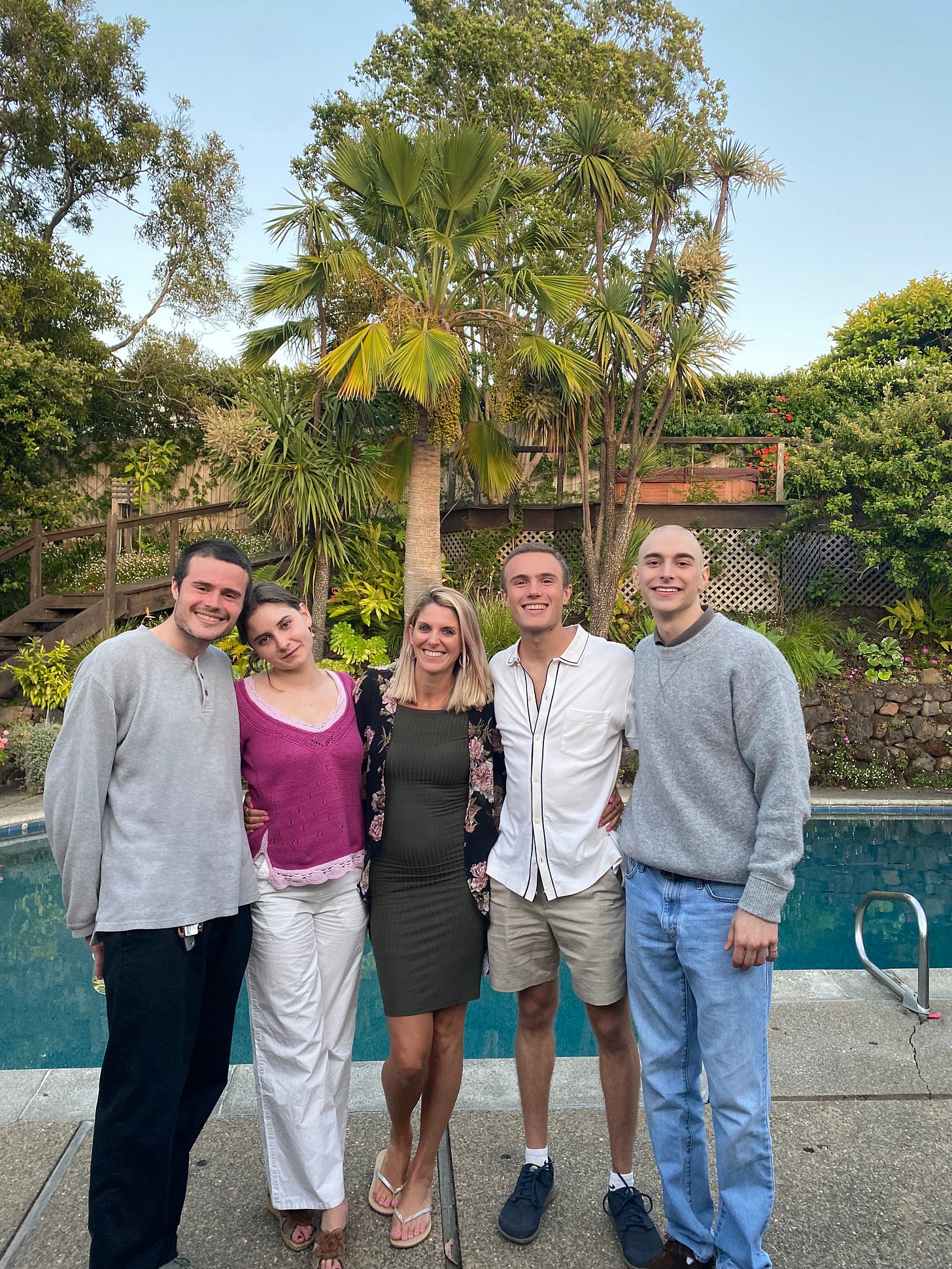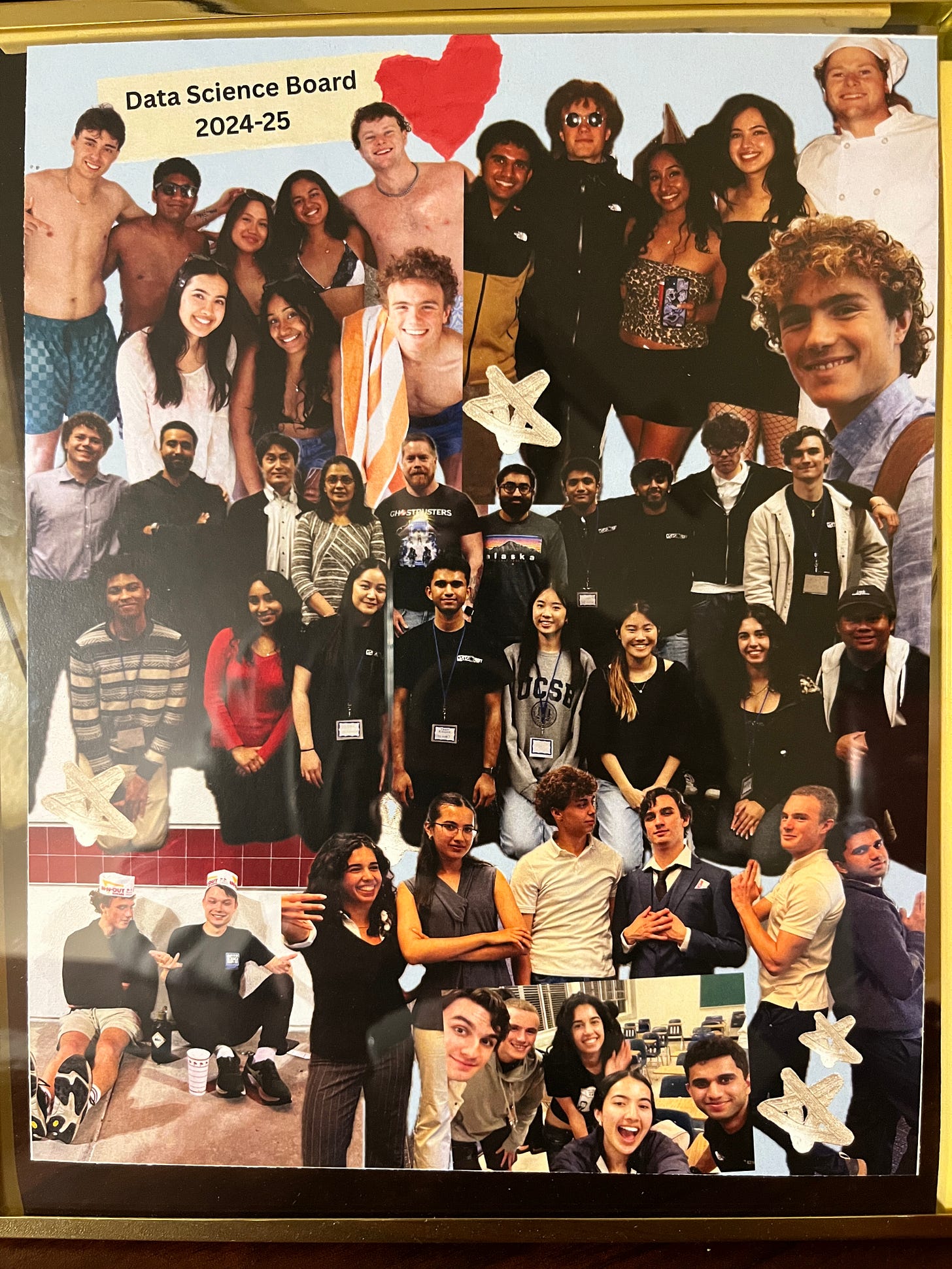Welcome back to Jeremi and Luca’s Newsletter, an update every Sunday from two friends connected by a relentless desire to learn.
Jeremi: Lines of Code
Software engineers are funny people: where else would you see a group of people cannibalize their own industry?
I’m referring to models like ChatGPT (that software engineers created), which have become so good at coding (i.e. scores among top 2000 coders in the world on competitive benchmarks) that it seems like only a matter of time before “coding” as an occupation becomes obsolete.
Sergey Brin, founder of Google, said himself that AI is better at coding than he is, and he doesn’t mind.
I’ve been thinking about this recently, both in terms of where I want to grow my expertise, and in terms of how I use AI in my own workflow.
On both my class project and research project, I don’t mind leaning on AI to help me with implementation details. If I have a specific idea that I want to explore, I will use ChatGPT to help me interact with the codebases and packages that I need in order to actually implement the idea.
There is always a tradeoff here: while AI can help me write the code faster, I’m sacrificing my own understanding of how exactly the code works. I’m quite literally offloading brain function to a computer.
This is not a new thing: we offload brain function to computers all the time. I don’t memorize how to multiply 1280*327—I just pull out my phone and let a calculator do it for me.
The question for me becomes: where do I want to offload brain function? Where can I let a machine do a job for me, and where is it important for me to cultivate deep understanding and capability?
While I don’t mind leaning on AI for implementation details, the skill of designing models is one that I don’t want to offload. It requires more abstract thinking and a strong grasp of the concepts underlying Machine Learning.
This is a big reason why I’m leaning towards more theoretical classes. Both of the grad classes I plan to take next quarter are specifically to help me with my mathematical foundations, to help me gain a rigorous and intuitive understanding of how these Machine Learning models work.
It’s also what I find myself most intellectually stimulated by! Concepts that are tough to wrap your head around, but satisfying when you get.
Of course, I can’t make a statement without qualifying it ;) — there’s a balancing act when it comes to programming. You need to be comfortable enough with the code you write to question some of the things that AI suggests. I may not be fully immersed in the implementation details, but I still understand what is going on.
But on balance, I’ll let ChatGPT be the better coder and focus on building my edge elsewhere.
Luca: Newsletters Written
Jeremi and I joked about starting a newsletter for a while before we actually wrote our first one a year ago. We were both off to internships for the summer: Jeremi to Lawrence Livermore National Lab and I to the U.S. Department of Commerce in D.C.
What was initially a summer project to log our adventures and keep in touch with family and friends became something that has persisted and will persist much beyond those three months.
Now, one year later, we’re starting our summers again—Jeremi soon since he’s on the quarter system at UCSB, but me as of last week.
I wrote about my plans at a high level back in March. I’m in New York City, working at a startup building AI fleet management software for private aviation. Basically, we’re creating products that help charter operators schedule, maintain, and optimize their fleets, crews, and passengers.
Existing players in this space are slow to move; the market is stagnant, and incumbents aren’t innovating. This startup is conversely moving incredibly fast.
My function this summer is that of a generalist—I’m our chief of staff, helping the founder and engineers in any way I can. Some days, that’s sales or business development, other days product or hiring. The top priority at all times is unblocking the engineers so they can focus on building an extremely high-quality product.
This week, my main focus was finding top technical talent for two positions we’re hiring for: a founding engineer and a fall software engineering intern. Plus, planning out how we can maximize value and potential customer conversations at an upcoming business aviation forum.
We’re full steam ahead on the product and are planning to launch by the end of next month. It’s super exciting to work with such a smart and high agency team.
It’s clear to me that I’ll learn a lot this summer and likely come away better prepared to start my own business someday. Just one example: attracting smart people to work with you might be one of the most prominent differentiators of success.
I’m writing this on the bus to Boston to visit my cousins in Gloucester for the three-day weekend. Events next week include a talk by the host of the Founders podcast and an AI policy event with a New York assemblyman and former data scientist at Palantir.









Congratulations on a great school year, guys. Jeremi, before you outsource all calculations to a computer, please take a look at the Trachtenberg method which we learned about when I attended Davidson Middle School all those years ago. It was invented by an engineer while he was in a Nazi concentration camp; he had to do all the figuring in his head because he had no pen and paper. For example, to multiply 43 times 11, add the digits 4+3 =7 and then place the sum between the two digits: 473. Amazing. You never know when you might be in the wilderness with no computer!
Gentlemen, wishing you both fun and exciting summer experiences!